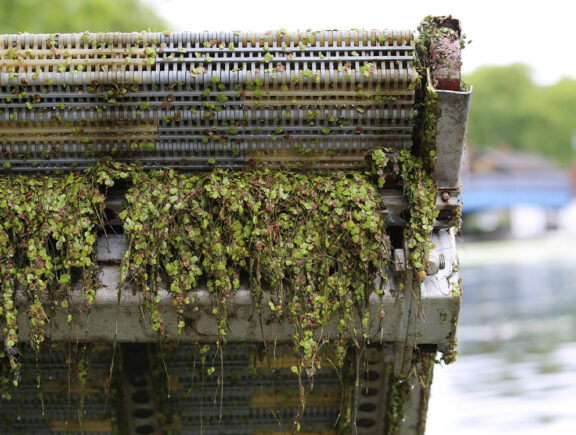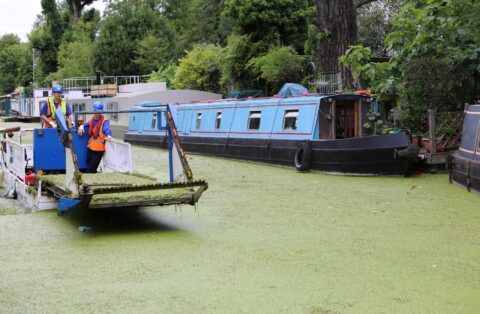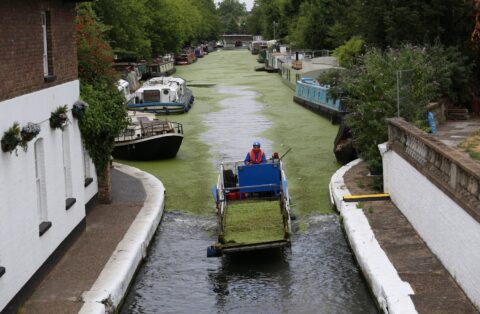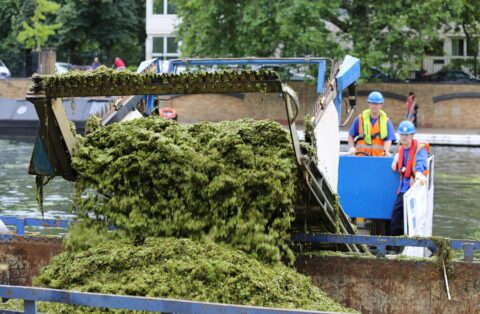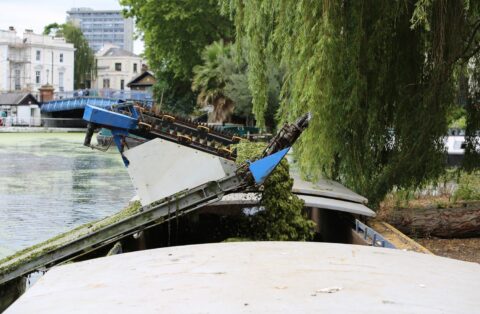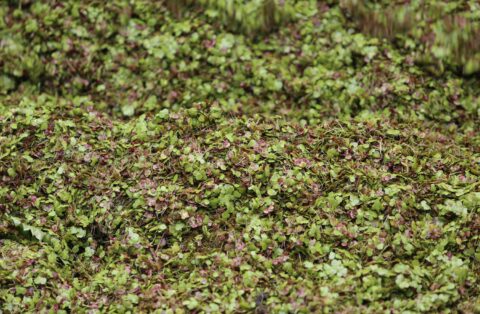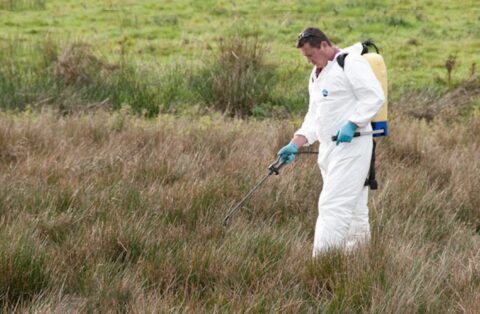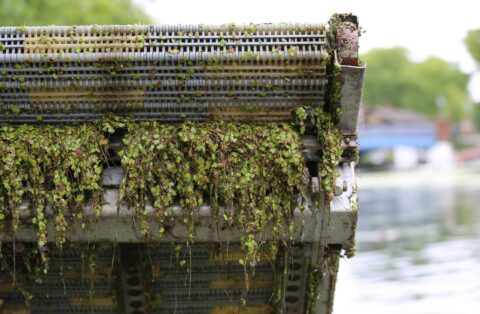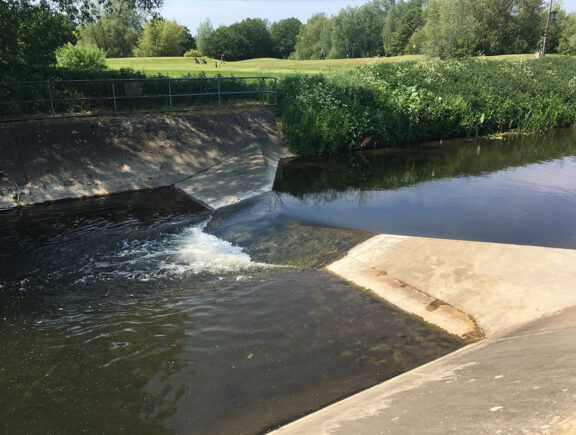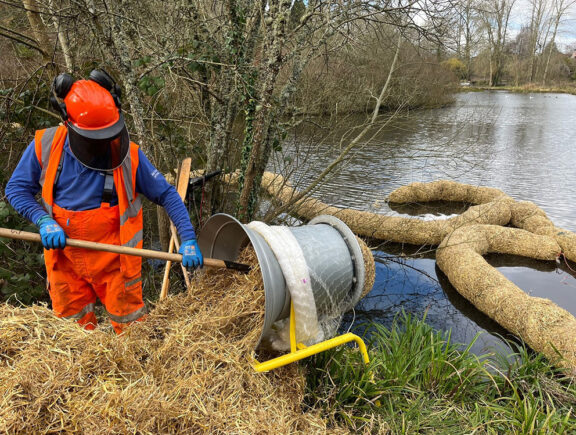Mechanical Control
With the use of a robust weed harvester, Stonbury has the capability to clear large areas of invasive weeds, in an economically viable and environmentally friendly fashion.
The weed boat is a cost-effective solution that also eliminates the health risks associated with the manual removal of weeds.
Benefits:
- Shallow draft
- Weed cutting depth to 1.8m
- Hold capacity of 3.5m³
- Discharge speed less than 2 minutes
- Excellent operator control, vision & manoeuvrability
Chemical Control
Stonbury also has experience in the use of chemical weed control, an effective control method, when used at the correct time of year. Herbicides containing glyphosate are used to treat small areas of Pennywort, often used in conjunction with a long-term programme to ensure effectiveness.
